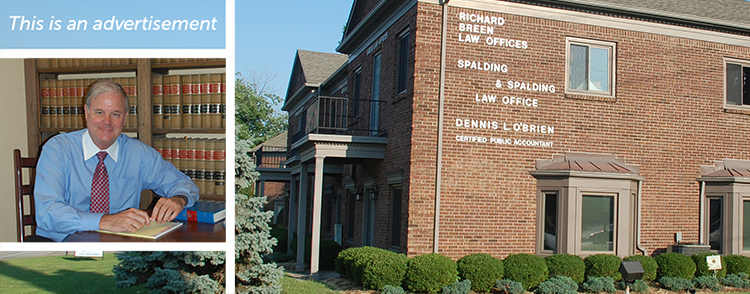At Wallace Spalding Law Office, we want to help you make the best decisions for you and your family. We give the advice you need to help you decide if a trust will benefit you. Please read the FAQ below to learn more about trusts, or call one of the experienced Louisville, KY estate planning attorneys at our office to get your questions answered.
Frequently Asked Questions about Living Trusts
Q: Can I act as my own trustee?
A: Yes. If you are competent to handle your financial affairs now, there’s no legal reason
why you can’t be the trustee of your own living trust. In fact, most living trusts have the
people who created them acting as their own trustees. If you’re married, you and your
spouse can act as co-trustees.
Q: What can I do with my assets once they’re in my Living Trust?
A: If you’re the trustee, you can do anything you want with the trust assets. When you
set up your living trust, you are transferring the title of all your assets from you as an
individual to yourself as the trustee of your trust. You manage the property for the benefit
of yourself as the beneficiary. You have absolute and complete control over all the assets
of your trust. You can spend, save, invest, or even give the assets away at your discretion.
There are no restrictions on what you can do with the assets in your living trust. Moreover,
if you don’t like the terms of the trust, you can amend it or revoke it at any time.
Q: Will my Living Trust avoid income taxes?
A: No. The purpose of creating your Revocable Living Trust is to avoid probate and to reduce or eliminate federal estate taxes. It’s not a vehicle for reducing income taxes. If you’re the trustee of your living trust, you will file your income tax returns in exactly the same way you filed them before the trust existed. There are no new returns to file and no new liabilities are created.
Q: If I transfer real estate into my Living Trust, will my property taxes go up?
A: No. Transfers into your living trust have no effect on your property taxes.
Q: If I’m only a part owner of property, can I transfer my share into a Living Trust?
A: Yes. Your share can go into the trust without changing the interests owned by others.
Q: Can I name Trustees and Beneficiaries who live out of state?
A: Yes. There is no limitation on where your trustees or beneficiaries must reside.
Q: Will I have to consult an attorney every time I buy new assets?
A: No. You take title to all new assets in the name of the trust and they will automatically be owned by your trust.
Q: Does my Living Trust need to be registered or recorded anywhere?
A: No. Your living trust is a private document which is not recorded. However, if you own any interest in real estate, the new deeds showing trust ownership may be recorded.
Q: Can I sell assets owned by my Living Trust without complications?
A: Yes. You sell assets in the same way you currently do. You will, however, add the word “Trustee” after your signature.
Q: Can I change the terms of my Living Trust?
A: Yes. While you’re alive and competent, you can alter your living trust or even revoke it without penalty at any time.
Q: Can I transfer real estate into my Living Trust?
A: Yes. In fact, all real estate should be transferred into your living trust. Otherwise, upon your death, depending upon how you hold the title, there will be a death probate in every state where you own real estate property. When it’s owned by your living trust, there is no probate anywhere.
Q: Is my Living Trust just a tax loophole that the government will close down?
A: No. Your living trust has been authorized by the law for centuries. The only portion of your trust that will be affected is the amount of the federal estate tax exemption. The exemption is $625,000 as of 1998 with a gradual increase to $3,500,000 in 2009. A properly drafted living trust can double the amount you can pass tax-free.
Q: What if I move to another state, is my Living Trust still valid?
A: Yes. Your living trust is valid in all 50 states, regardless of the state where it was originally created.
Q: Is a Living Trust only for the rich?
A: No. A living trust can help anyone who wants to protect his or her family from unnecessary probate fees, attorney’s fees, court costs and federal estate taxes. In fact, if your total estate is greater than $100,000, a living trust offers substantial protection for your family. Regardless of the size of your estate, a living trust can protect you in the event that you become unable to handle your own affairs.
Q: Are there any major disadvantages to a Living Trust?
A: No. Because you have complete control of all assets in your trust, you’re free to manage your living trust in any way you want. Also, because your living trust is revocable, you have the right to make any changes in it while you’re alive and competent.







